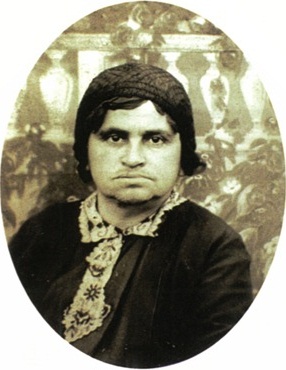 |
This medieval illustration depicts a hunted beaver biting off
its testicles to escape the fate that has befallen its friend |
Did you know that when you hunt a beaver, it will save itself by biting off its testicles and throwing them at you?
As a recent article in
Wired magazine discussed, this was a widespread belief in the medieval period. It wasn't as crazy as it sounds. Beavers were indeed being hunted for their testicles, which were thought to have medicinal benefit, along with internal pouches called castor sacs (which were also thought to be testicles), from which a substance called castoreum is harvested. In the same way as certain lizards will shed their tails as a payoff for predators that want to eat them, it was believed that beavers will sacrifice their testicles in order to escape with their lives.
Reader
Akiva M. drew my attention to this belief also being found in rabbinic writings. Yehudah Aryeh Mi-modena (Leone di Modena, Italy 1571–1648) mentioned it in his book of ethics,
Tzemach Tzaddik. This fascinating work lists the various character traits of man, both good and bad. For almost all of them, the author gives an analogy from the animal kingdom. His interests were drawn to the extraordinary; the creatures that he mentions include the basilisk, which kills by sight; the mermaid, which lures sailors to their deaths; and the immortal phoenix. But he also mentions many real animals, to which he attributes extraordinary qualities, in line with standard medieval beliefs. In the entry on the quality of peace, di Modena writes as follows:
 |
The castor sacs of a beaver,
often confused for testicles |
Go and observe the trait of peace in the animal known as castoro (the beaver, Castor fiber), which instinctively knows that hunters pursue it for its testicles, which possess excellent medicinal properties, as is known. Therefore, when it finds itself hunted with no way of escape in any direction, in order to save itself it severs its testicles with its teeth and casts them down, so that the hunters will take them and he can be in peace.
This is not, however, the only reference to beaver testicles in rabbinic literature. To my mind, it is not even the most interesting reference. That honor belongs to a very brief comment by the thirteenth century French scholar Chezkeyah b. Manoach, better known by the name of his commentary on the Torah, Chizkuni.
In
parashas Re'ay, there is a list of ten kosher land animals. Sixth in the list is the
yachmor. As discussed in the forthcoming
Torah Encyclopedia of the Animal Kingdom, there is evidence that this is the hartebeest, which became extinct in
eretz Yisrael long ago. Others identify it as a fallow deer or roe deer. More far-fetched suggestions, proposed in the nineteenth century, include the wildebeest (R. Yosef Schwartz,
Tevuot HaAretz p. 364 and
Divrei Yosef p. 64–65) and moose (Shalom Yaakov Abramowitz,
Toledot HaTeva vol. 1 p. 400). These are indeed kosher animals, but neither of them lived anywhere near biblical lands.
But by far the most extraordinary suggestion is that of Chizkuni, who translates the
yachmor as
bivra, which means beaver. Quite aside from beavers not living anywhere near biblical lands either, there is a more serious problem. As R. Yosef Schwartz points out, the beaver is not remotely a kosher animal!
Why did Chizkuni identify the
yachmor as a beaver? In his comment, Chizkuni refers us to the Gemara,
Bechoros 7b, which refer to the "eggs" (testicles) of the
yachmor. The Gemara's statement occurs in an extensive discussion regarding whether various animal products are permitted for consumption. Certain animal products are considered to be waste matter rather than food; accordingly, if for some reason a person wanted to eat them, he may do so even they do not come from a kosher animal. Conversely, some products of kosher animals are not permissible for food, if the animal from which they are derived is still alive, due to the prohibition of eating any part of a kosher animal that has not been slaughtered. With these principles in mind, the Talmud discuss the status of certain mysterious secretions produced by the
yachmor:
With regard to the clumps (that are secreted) by a yachmorta, the Rabbis proposed that they were eggs (or: testicles) and were therefore forbidden (for human consumption, since they are a detached part of a living animal). Rav Safra said: It was really the seed of a stag which sought to mate with a hind, but since the hind’s womb is narrow it rejected it, and thus the stag pursued the yachmorta, but its seed had already congealed (and is thus excreted as clumps; and since seed is classified as mere waste matter, it is not forbidden for human consumption). (Bekhorot 7b )
The phenomenon described by the Talmud is not recorded in contemporary zoological studies, and it is difficult to correlate it with any known phenomena. Animals such as deer, antelope, and hartebeest have various scent glands that can produce waxy secretions, but these would not appear to be the egg-like “clumps” discussed in the Talmud. The only clumped products from kosher animals that might be used for food are bezoar stones. These are masses found in the stomach or intestines of animals, especially ruminants, and in particular the bezoar ibex. Bezoar stones were used to make antidotes for poisons. However, it is difficult to claim that these are the subject of the Talmud’s discussion, since the Talmud indicates that these objects are secreted by the animal, whereas bezoar stones are extracted from the animal after its death.
In any case, we see that the Gemara talks about an animal called the
yachmor producing testicle-like objects that are consumed by humans. Accordingly, Chizkuni presumed that the reference was to the beaver, from which castor sacs are taken for medicinal purposes and as a food additive.
Incidentally, this still occurs today. Castoreum is sometimes used as artificial vanilla flavoring. In the US, it can be listed on a product's ingredients as "natural flavors". This is why food requires kosher certification!
To my mind, the latter reference to beaver testicles is much more interesting than the former. Believing that beavers bite off their own testicles to throw at attackers is merely one of many common medieval misconceptions about animals, that is easily accounted for. Believing that the beaver is a kosher animal, on the other hand, is truly bizarre; beavers were very common animals in France. If anyone has an explanation for it, please let me know!
On a related note,
The Torah Encyclopedia of Animal Kingdom is nearing completion. The writing, editing and photograph selection are all finished, the first round of proofreading has been done, and the layout is almost complete. Thanks to the generous support of many people, most of the book is already sponsored, but there are still funds that need to be raised for this extremely elaborate project. If you would like to make a dedication, please
be in touch. You can download two sample chapters, on the leopard and hyrax, at
this link.













